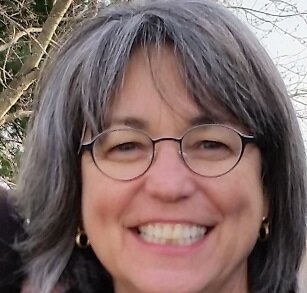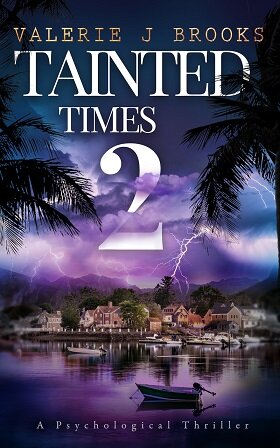I’d like to welcome author, Valerie J. Brooks, to the blog for #ThisorThatThursday.
A few of your favorite things: my Paris pen; my crystal-encrusted moon necklace, à la Stevie Nicks; my library
Things you need to throw out: recently, I redid my writing studio and threw out binders of papers that no longer seemed useful now that we have the internet; plus I took everything out of the room and only put those things back that I really wanted, much easier than trying to pick it off, one at a time.
Things you need for your writing sessions: my Bose earphones while listening to Creative Mind System’s “Vision” and “Inspiration” by Dr. Jeffrey Thompson
Things that hamper your writing: getting started
Things you love about writing: it’s a combination of the immersive, like reading a great book, and the analytical; writing psychological femmes-noir thrillers is like solving a puzzle
Things you hate about writing: getting started
Hardest thing about being a writer:
When I was a visual artist, people saw my work in its different stages and said things like “I could never do that!” Now you can even post your paintings on the web. Writing a novel is different. It takes a long time to finish a novel, and it’s difficult to get out to your audience. Plus, some people think anyone can be a writer just because everyone can put words to pages.
Easiest thing about being a writer: LOL; Ok, seriously? Probably having your own hours.
Favorite music or song: Stevie Nicks’ “Edge of Seventeen”
Music that drives you crazy: klezmer
Favorite beverage: kombucha
Something that gives you a sour face: lima beans
Favorite smell: amber
Something that makes you hold your nose: heavy chemical perfumes
Something you’re really good at: theorizing, according to my husband
Something you’re really bad at: trying not to fix everything
Something you wish you could do: sing professionally
Something you wish you’d never learned to do: I’m happy about everything I’ve learned, even if I’m not good at it, because it always has a benefit, especially for a writer
Something you like to do: travel more, but that’s not an option right now
Something you wish you’d never done: given my dad fits when I was a teen
The last thing you ordered online: purple fairy lights for my studio
The last thing you regret buying: a “Smart Reusable Notebook”; it sounded great, but it had that horrible plastic smell that makes me sick
Things you’d walk a mile for: People; I’d walk a mile or more for my family.
Things that make you want to run screaming from the room: things don’t bother me, but self absorbed, aggressive people with no empathy do
Things you always put in your books: themes of justice and fairness; dogs; and three-dimensional characters
Things you never put in your books: gore for gore’s sake; sex can’t be gratuitous, must always develop character.
Things to say to an author: “Really? How cool. Tell me what that’s like?”
Things to say to an author if you want to be fictionally killed off in their next book: “I have this great idea that I think you should use for a novel.” So many people ask right away, “Oh, have you published?” Not a good start.
Favorite places you’ve been: Paris
Places you never want to go to again: none
Favorite books (or genre): I’m an eclectic reader, but at the moment, I’m reading anything noir as that’s what I write.
Books you wouldn’t buy: cookbooks
People you’d like to invite to dinner (living): Stevie Nicks, Richard Branson, Michelle Obama, Helen Mirren, Laura Lippman.
People you’d cancel dinner on: Trump and his minions
Favorite things to do: writing and gathering with my family
Things you’d run through a fire or eat bugs to get out of doing: dusting
Things that make you happy: dancing and being with my family
Things that drive you crazy: not being able to be with my family because of Covid
Best thing you’ve ever done: had a family
Biggest mistake: I don’t think of mistakes as bad. If you didn’t make mistakes, you’d never learn.
Most daring thing you’ve ever done: be a professional writer.
Something you chickened out from doing: rappelling into caves with the family; I hate that type of physical “adventure”
The funniest thing to happen to you: too many to mention!
The most embarrassing thing to happen to you: too many to mention!
The coolest person you’ve ever met: my bestie, Jan Eliot, who is one of the world’s best and one of a few female syndicated cartoonists with her strip “Stone Soup”; sadly she’s retired and we all miss her daily strip.
The celebrity who didn’t look like he/she did in pictures/video: Robert Kennedy; he looked small, irritable, and was unfriendly, nothing like Jack
The nicest thing a reader said to you: I had a stranger call me from Maine to say how much one of my stories affected her and how much it helped her to read the story; it was in the anthology France, a Love Story, and was about what I learned about my father the first time I went to ParisThe craziest thing a reader said to you: at a wedding, I was approached (almost accosted) by someone who was a tipsy and wouldn’t let me up until he told me the story he was going to “give” me to write.
About Valerie
Award-winning author Valerie J. Brooks is a lifelong writer and reader, enjoying everything from Daphne du Maurier to the latest Scandinavian crime writers. Her English war bride mum and artistic army officer dad raised her and two siblings in ultra conservative New Hampshire during the 1950-60s. Growing up in puritanical New England, she was drawn to the gothic, to secrets, mystery, and the dark side of human nature. As her mum once said, “You’re a good girl who wants to be bad.” Now she has the perfect conduit for her “bad girl” side—writing noir.
Her college studies of film noir led her to write noir. She combines her interests in politics, culture, travel, psychology and women’s issues while writing strong, gutsy women who make mistakes and have lots of baggage. As the saying goes, and Brooks expanded upon, “Well-behaved women seldom make history—or good novels.”
She received an Elizabeth George Foundation grant and the Monticello Award for Fiction. For four years, she served as fiction editor at Northwest Review, was a member of the Oregon Writers Colony board of directors, and co-founded the Willamette Writers Speakers Series.
She writes psychological femmes-noir thrillers. The first in a trilogy Revenge in 3 Parts was a finalist for the Nancy Pearl Book Award and a winner in the International Reader’s Favorites Awards in the thriller category. Her second novel in the trilogy Tainted Times 2 has just been released.
If she were hypnotized and regressed, she said she probably would have been a psychiatrist or a witch.























